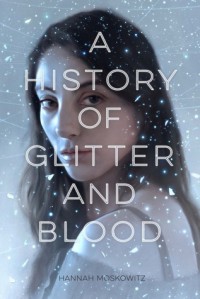The Ninja Reader
High-brow or downright pretentious, good PNR or sparkly vampires, I don't care about the premise so long as it entertains me.
That awkward moment when you're reading a review and you think: What a nasty person
And then you realize you're reading something you wrote three years ago.
Porning up the literary biographies?
Two books, fairly new releases.
Two books I just happened to pick up, nearly one after the other.
Both are novelized biographies.
Both are about women artists who are rumoured to have had male and female lovers.
Both authors choose to follow the idea that their main subjects were bisexual.
Both books are rather restrained with heterosexual love scenes.
Both books are rather un-restrained with the gay love scenes.
Odd coincidence, that.
 2
2
Fun Observations From Discussions With My Grandma
#1 Despite the existence of pen pals preceding the Internet, online friendships with strangers are weird. (Apparently.)
#2 The only interesting thing about strangers are their scars.
I find the first more interesting than the second.
 2
2
Not sure how I feel about this
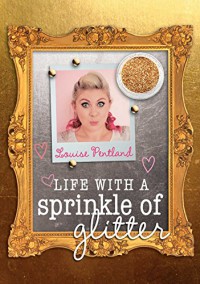
I don't know if I am the target audience for this at all - parts are written for teens, some for college students, some for young mothers, and I liked some, but I didn't like all, mostly because it was things I already knew but in a pretty cover.... yeah.
The bulk of this feels too "young" for older women, while the bits and bobs about babies and buying your own house felt a bit adult for teens. And I don't know about you, but I find it really hard to get into a book that uses words like "nudey-tudey" and "bippits and bobbets" on a regular basis. Some DIY ideas I liked, others went entirely over my head. (I was surprised landlords in Liverpool let you paint your own walls. Five years of moving in and out of student flats and the most that I've let myself do is blu-tac pictures and postcards to the wall, and I haven't been to a rented property that was any different.)
Much like Louise herself (or at least her Internet persona) this book is bright, shiny, with the occasional touches of gravity when it tackles subjects like bullying or the hardships of taking a long time to bond with your baby. In fact, I appreciated her honesty greatly when she said that motherhood isn't always easy (contrary to popular narrative) and I appreciated her even more when she urged readers to be kind to themselves and others. She has a chapter on meeting Kylie Minogue and the anxiety she felt, and how things later resolved themselves, and it seems like a very brave thing to be sharing. I think it was a wonderful thing that she did that.
And yet even with all the things I enjoyed about this book, for the most part, I just wasn't feeling it at all. Maybe it's because I don't like pink that much, or because I actually like cooking and the thought of cronuts (croissants made into donuts. It's the new cupcake, apparently) makes me do an elaborate eyebrow-raise, but I did not get along with this. If it's something that you think you might like, go for it, but me... nah. I don't think that was for me at all.
 3
3
Can anyone recommend a good beta/editing service?
Seems odd to write on a site full of voracious readers, but I do care about personal recs.
Interesting so far, but....
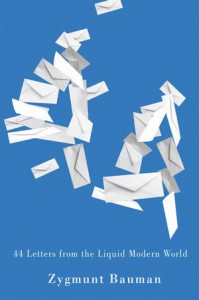
I was hoping for something more unbiased. It's the sort of thing written to please newspaper readers - namely, the older demographic. Gen Y in particular seems to be this author's favourite whipping toy. The piece on "stalking Gen Y" and our hedonistic upkeep seemed like something written to appease David Cameron as he trebled university fees and got on his high education horse.
 1
1
Suffering, in this new paradigm, became aligned with the new significance accorded the self. No longer understood in terms of Christ's sacrifice, or as a test of faith, suffering was instead linked to desire. Desire-the needing, craving, ing, and wanting of objects or others that were no longer (or never had been) attainable-was not to be denied; nor was the suffering it caused to be borne. Rather, it was to be remediated-by letting go."
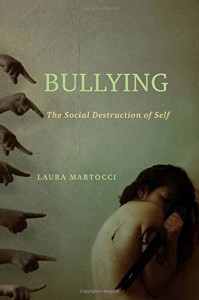
Laura Martocci. Bullying: The Social Destruction of Self (Kindle Locations 160-166). Kindle Edition.
 3
3
Reading this and...

...having a strong desire to write some romantic thrillers of my own. Any recs for a wannabe member of Romancelandia?
 3
3
A NEW ASSOCIATES BOOK!!!!!!

*squeeeeeeeeeeeeeeeeeeeeeeeeeeee*
OMG, so much excitement!
And "Against the Dark" and "Mind Games" are free on the UK Kindle, too!
Best. Day. EVER!
Review: So You've Been Publicly Shamed by Jon Ronson

"Yet most journalists still profess the ideal of objective reporting, even when it comes to highly subjective matters. No proper journalist has ever admitted that anybody who does or suffers anything that brings them into public attention, intentionally or not, has an right to privacy. But in practice, journalists respect privacy when they describe objective actions and speech, leaving subjective motives, thoughts, and feelings to be deduced from the description; and outside the tabloids, most journalists do that. Serious journalism defines itself by the avoidance of speculation presented as fact."
- Ursula K. Le Guin, Fact and/or/plus Fiction, The Wave in the Mind, 2004
The above quote resonated with me in more ways than one, when I thought about it in relation to Jon Ronson's "So You've Been Publicly Shamed." Though I finished it almost a month ago, I was sitting on the fence writing this review, because despite enjoying it quite a lot as I read (or rather, listening) along, I left it feeling put off for some reason or another. And I think Ursula Le Guin helped me make sense of things.
Though he doesn't go out and say it, Ronson is trying really hard to give us his work from a position of objectivity. It's the promise of objectivity that makes the premise work - after all, giving a voice to the recipients of public shamings on the Internet can open a book to criticism (to put it extremely mildly.) But... well. It didn't sit well with me, because while it made some good points about public shamings, and how ineffective they are to change people's behaviors, it failed to provide us with a more optimistic alternative.
From the first set piece, where Ronson recounts being targeted by a group of self-important academics who made him a spambot, and then got back to them by inadvertently turning the Internet's collective fury to the academics, to the last, the book holds onto its objectivity for dear life. While it provides Ronson with some protection from any rotten tomatoes (or more dangerous projectiles) that can be hurled his way, it also stops him from being able to make a case for a more humane, sympathetic treatment of wrongdoers.
Which is a shame because as a tool for punishing bad behavior, collectively shaming a person online can be a very blunt, destructive force, one that doesn't acknowledge degrees of wrongdoing. Ronson shows, again and again, how an online shaming destroyed the shamees' lives, regardless of the gravity of their actual transgression, or the intent behind it. Lindsey Stone is basically given the same treatment as Jonah Lehrer, when arguably her crime - a crass picture that apparently got shared with more people than she intended - is not on par with his - intentional self-plagiarism, plagiarizing other people's work, and inventing quotes. Ronson also makes a good point that legislation like "Right to be Forgotten" and private online reputation management services are not really effective in helping people out because they're either dredging up old scandals, or are too expensive for an average earner.
Unfortunately, Ronson's claim to objectivity also means he doesn't spend more time advocating alternatives - like making said reputation management services more affordable, or advocating for a more humane approach to online interactions, or just for the installment of better social contracts online among everyone. He most certainly doesn't spend enough time in the shame-eradication workshop or reflect in depth on his experiences there, at least not in any way I found satisfactory. His brief visit to a New Jersey jail, where the inmates thrive under a kinder, more humane program, is kind of served to us without him talking about the wider implication at length, which, as other reviewers have said, is more than a little disappointing.
Another downside of Ronson's supposed objectivity is that he treats each and every one of his case studies in the same way, regardless of the gravity of what they'd done. Again, as other reviewers have pointed this out - maybe I don't want to read a book that puts Jonah Lehrer and Lindsey Stone together as equal victims. Maybe they both suffered the Internet's indiscriminate wrath, but the way these two came to their predicaments, and the way they reacted to those predicaments, is completely different. Maybe I don't want Ronson to dispassionately list their struggles as if they're the same. Yes, Lehrer being forced to apologize in front of a huge projection of a live Twitter feed was harsh - did it merit 3 whole chapters in the book? And yes, it was decent of Ronson to arrange free Internet reputation management for Lindsey Stone to help her with her anxieties - but what about the rest? Does he have no comment about the fact that one is a rich New York Times bestselling author doing something that goes against the code of ethics of his field, and that the other is a female care worker? Did he have no sympathy for Adria Richards, whose only crime was to be "difficult" (and was the casual sexism of that term applied to a black female developer lost to him entirely?)
Yes, the Internet tends to treat all transgressors in the same way, but so does Ronson; and his refusal to be subjective ends up portraying all participants in an Internet shaming as one giant open-mouthed mob, brainless and senseless; basically, he put Adria Richards on the same plate as the 4Chan user he interviewed, which, seriously? I mean, seriously? Let's not forget, (as I did briefly and was then reminded by other reviewers) that he's made money from this book and he's brought up a lot of old stories for the people he interviewed. Not all of them haven't got things to lose.
Again, I think he has some good points to make, but they're sort of lost in translation. I listened to this book, thinking about the way it reflected some of the things I've seen online in the past few years, and he makes it really hard for me to agree with him because his subjectivity also makes his work devoid of nuance. And, for something that advocates a more compassionate approach to online interactions, that's a major problem.
For a contrast, take Johann Hari's equally controversial, but considerably more subjective "Chasing the Scream: The First and Last Days of the War on Drugs" (shameless plug: here's my Bibliodaze review of it.) Like Ronson, Hari talks about how criminalizing drug users and shaming them makes drugs a bigger problem. Unlike Ronson, Hari speaks from the position of a long-time activist, one who has loved ones who are addicts, and one who struggled with his feelings about drugs for a long time. He's not shy about "stating his positionality" (an academic cliche, but a cliche for a reason,) but that doesn't hurt the work. If anything, it sets things clear with the reader from the start, and the reader is free to draw whatever conclusion they like. It's not bad journalism to let people know you will be biased. It's responsible.
As for Ronson, I'm not sure I'll pick up anther book of his. Ultimately, his take on public shamings feels like a lost opportunity (a more than a little exploitative one, to boot.)
 4
4
Beautiful

Towards the end of "Just Kids", Patti Smith says, in relation to how long it took her to write the story of her and Robert Mapplethorpe's friendship, that there were many stories she could tell, in many different ways, and in the end, this was the story she chose. It made me grateful to hear it, as I had been grateful to hear pretty much everything else in this biography (I listened to it in audiobook form) because it hit the nail on the head. A biography, or an autobiography, can make claims on objectivity, but it is, in the end, one person writing about another, putting together other people's recollections of them, giving us an angle to view that person from. It's not a bad thing, mind you - it is the nature of the medium - but not enough people go out of their way to remind us, and we end up taking their word as gospel.
Patti Smith's memoir tells the story of youth, friendship, discovering oneself as an artist, being brave, taking risks, and lettuce soup. She tells us of how both she and Robert Mapplethorpe decided to go down the artist road, how they met in New York in the 60s, how they became friends and loves and then friends again, how, despite all the metamorphoses of their relationship, they supported each other through thick and thin, until the very sad end. It's a complex story, a human story, one that is compassionate, but one that doesn't try to blunt any sharp edges.
I've said it once, I'll say it again - I can't review biographies and memoirs, not in the same way one reviews fiction. (How can I?) I do think, however, that everyone needs to read "Just Kids" - not just because it's beautifully written, but also because it presents something very rare these days - it tells the story of a friendship that is true, loving and supportive. It's reassuring - it tells us how a good, collaborative artistic relationship can work. It tells us that things worked out. It tells us about the importance of pushing our friends' creative pursuits and supporting them, even if we don't necessarily understand them. It's about believing in the artist, and helping the artist through.
And in a way, that's something that everyone can apply into their areas of their life. Think of how individualistic and mistrustful Western culture has become. Think how paranoid we are about being original and doing something that no-one's ever done before. Think how there's nothing worse than being "average" in this day and age, and think of how much we're hurting each other, living to an expectation that we must all be perfect and exceptional or else what is the point. "Just Kids," above all else, reminds us to be human.
Oh, and the audiobook was really good, in case you're wondering. Not my favorite performance, but I loved it nonetheless.
Why do I get the feeling that this guy really hates women?

It's about the halfway point of the novel and the heroine, Penny, walks through New York - a city riddled with abandoned children and hapless men trying to find their missing wives. All women but her have succumbed to a strange addiction to sex toys and, as it will be revealed later, are being compelled to only buy the products of this one company. A couple of gay joggers whizz past Penny. One jokes that the girls must be having a lot of fun. The other says good riddance.
Up till this point, I had been fairly okay with "Beautiful You" - maybe not 100% on board, but not in any way that differs from usual black humor readings. But seeing the gay joggers' casual, jokey attitude to what looks like a dystopia happening around their ears, jarred me out of the narrative in a way that I wasn't quite sure I understood. So... if the world burns, it's only straight people's problem? And... what? Rich megalomaniacs won't touch gay people because they don't care? I mean... what? The only gay characters we meet in a novel about taking the world over by dildos and nanobots, and this is their contribution? Is the implication that only women use sex toys? Why? (Sigmund Freud, don't even think about it!) What about asexual people? What about sex workers? What about transsexual men and women? I get that this is a satire, but seeing as it starts with the rape of the main character in a courtroom, I wouldn't have expected it to be so... straight.
(It reminded me of this deconstruction of Lullaby, in which the reviewer wonders why Palahniuk needs to comment on where a woman shaves or not and using a choice like that as shorthand for her flaws of character. I think now that I made it through an entire one of his novels that I have to add my discomfort to Erika's. Also, out of all the weird, disturbing things about this novel, I'm mostly surprised at this guy's fixation on women's pubic hair as indicator of their progressive attitudes. I mean, yeah, there are those who make a political statement with their look, but for every Activist there are at least 20 of us plain Janes who just can't be bothered.)
But I digress.
"Beautiful You" starts off well enough (or as well enough as a Palahniuk novel can be) promising us a gender dystopia where all but one woman have disappeared, as well as a darkly satirical riff at "50 Shades of Gray." Our heroine, Penny, is a wannabe lawyer dissatisfied with what feminism has to offer, tired of living other people's dreams, and sort of plodding along as an "intern" at a big company. In true Cinderella fashion, she meets "the richest man in the world" and ends up being drafted as a guinea pig for a line of sex toys he's planning to release into the world very soon. But, the sex toys aren't just harmless vibrators, and threaten to bring about the end of the Industrialized World as we know it!
Or, you know... if the entire Industrialized World is made up of straight people who all enjoy sex and can't get enough of it. Oh, and how does our heroine save the day? With the help of an ancient shaman lady who teaches her all the ancient sexual techniques of humanity in a cave on Mount Everest, of course! (This is one of those novels where you can make a drinking game of cultural appropriation and racist stereotypes. Provided you also have 911 on speed dial.)
The thing about satire, to quote JO, is that it can be biting and hateful, but it can also be done from a place of love. "Beautiful You" is satire, but it's more venom than honey, if that makes any sense to you. It makes good points about feminism being full of old dreams being forced on new women, and it makes what I understand are some good Palahniuk critiques about materialism and capitalism and making commodities of everything. And not all of the absurd moments are bad - I can honestly say, this is the one author whose books can feature a death by a flying flaming dildo without it being out of place.
At the same time, the premise hinges on a very specific worldview - that every woman in the Industrialized World has the budget and the inclination to buy a sex toy, and that the men are either pick up artists, entrepreneurs, or carefree gays, which seems... odd. And the final resolution... well, let's just say it's the second thing that left me scratching my head in this novel. (Supposedly, Penny is free both from the bounds of capitalism and has found her calling, and using Maxwell's evil technology for good, but as the wise white woman living on top of a mountain, far removed from everyday life and making decisions about the bodies of millions of women, she doesn't cut a very promising figure.)
Overall... well, I don't really want to make the analogy because I'm a little sick of the sex references. Time for something a little less taxing on the heart. Like Mad Max for example.
 4
4
Great reflections on photography, but...
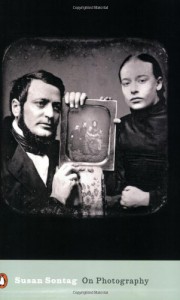
...the narration in the audiobook was so robotic, I basically zoned out half the time. Still... easier to absorb non-fiction, I find.
FOLLOW UP: Research volunteers wanted
Hello again!
My ethics just cleared, and I've got the survey link ready. Those of you who are interested in taking part and haven't gotten in touch, can you send me a direct message to confirm your interest and I can send you the survey link?
Thanks again for everyone who offered to help, you guys are amazing!
Hi everyone!
So, you might remember me posting a couple of months back that I'm doing my postgrad research on online communities. I have a big project coming up, and I'm looking for participants.
I'm studying how trust is built and lost in online communities. I'm looking for people who used to be involved in the Goodreads blogging community and have either left the website completely or partially. It's a small project, I need 10-15 participants, and you'd need to fill out a survey about your perceptions and feelings about the community.
If you're interested, or know someone who is interested, can you send me a DM, and I can give you the deets. I'm just waiting for my ethics form to clear for this.
Thanks everyone!
 4
4







 1
1
